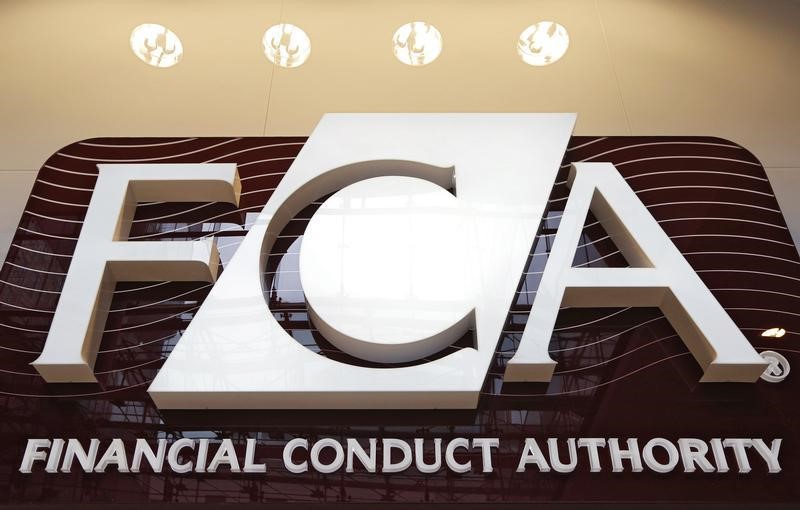By Huw Jones and Matt Scuffham
LONDON (Reuters) - Britain's financial regulator said on Friday it intended to set a 2018 deadline for people to claim compensation for being mis-sold debt repayment insurance, potentially drawing a line under Britain's costliest consumer finance scandal.
Over the last five years banks have already set aside more than 28 billion pounds to meet compensation claims from borrowers sold payment protection insurance (PPI).
The policies, designed to protect borrowers in the event of sickness or unemployment, were found to have often been sold to people who would have been ineligible to claim.
But the Financial Conduct Authority (FCA) said on Friday it planned to call time on further PPI claims, as more than 20 billion pounds has already been paid out to over 10 million consumers.
"We take the view that a deadline ... would help bring finality and certainty in a way that advances the FCA's operational objectives of securing an appropriate degree of protection for consumers and protecting and enhancing the integrity of the UK financial system," the regulator said.
The British Bankers' Association, which has been lobbying for a deadline, said the watchdog had provided further clarity for consumers, who should contact their bank directly if they think they are owed compensation.
The FCA said it aimed to issue a consultation by the end of the year, and set the deadline two years from the rules coming into force. The new rules would not come in before spring 2016, so consumers will have until at least spring 2018 to complain.
Bankers said privately that a deadline could still be three years away, and the regulator's comments have failed to dispel additional uncertainty caused by a key court ruling related to PPI.
But analysts at Citi bank said while the deadline may bring forward more complaints it would also greatly reduce uncertainty for the banks. "We believe this is a positive outcome, with Lloyds set to benefit most," Citi analysts said in a note.
Shares in Lloyds Banking Group (LONDON:LLOY), which has set aside more than any other bank to compensate customers, were up 1.4 percent at 1335 GMT. Barclays (LONDON:BARC), HSBC and Royal Bank of Scotland (LONDON:RBS) were all lower, reversing earlier gains, in line with the broader market.
Consumer groups were cautious, saying the deadline must not reward banks that are dragging their feet over payouts.
"If a timebar is introduced, the FCA must make sure all banks carry out a complete review of their PPI handling," said Richard Lloyd, executive director of the Which? consumer lobby.
ENDING INERTIA
Normally a deadline of three years is placed on complaints about financial products but none was set with PPI as many customers were unaware they had bought the product.
The watchdog said that it was an appropriate time to set a deadline as rules on PPI claims have been in place since 2010 and surveys showed most people were aware of possible compensation.
A deadline could help end some of the "inertia" being seen as some consumers are not bothering to make a claim, the FCA said. It could give no figures on potential remaining claims.
A high and growing proportion of PPI claims now go back a decade or more, with the evidence to back them becoming increasingly "stale" or patchy, the FCA said.
The FCA said that sales of loan insurance fell dramatically after early 2009 and the current rules and guidance about making a complaint have been in place since December 2010.
PLEVIN JUDGEMENT
The regulator also said the time limit would also apply to complaints being contemplated following a landmark ruling last year by the Supreme Court which suggested there might be an additional cause for complaint over PPI sales concerning the level of commissions paid on the sale.
The court found that Paragon Personal Finance breached the Consumer Credit Act by failing to tell a borrower, Mrs Susan Plevin, that the charge of 5,780 pounds for her PPI policy, which was added to the loan of 34,000 pounds, included a commission paid to Paragon and a credit broker amounting to 71.8 percent of the total PPI premium.
If the ruling was found applicable to other PPI sales, banks may have to pay out billions of pounds more in compensation.
The FCA said it will now consult on rules and guidance about how firms should handle PPI complaints in the light of the Plevin judgement.
However it is suggesting that a commission of 50 percent or more on a PPI sale should be deemed "unfair", with the customer potentially eligible for compensation, but only if they have not yet successfully claimed for PPI mis-selling.
The average commission was about 67 percent, and redress would cover the difference between the 50 percent "unfair" threshold and the commission actually paid, the FCA said.
Analysts at Citi said that the proposals to impose the same deadline on claims related to the Plevin case should also mitigate the impact of the ruling on the lenders.

"With the onus seemingly placed on the consumer to complain, within a fixed deadline, this should greatly reduce the redress risk associated with Plevin, in our view," the analysts said.